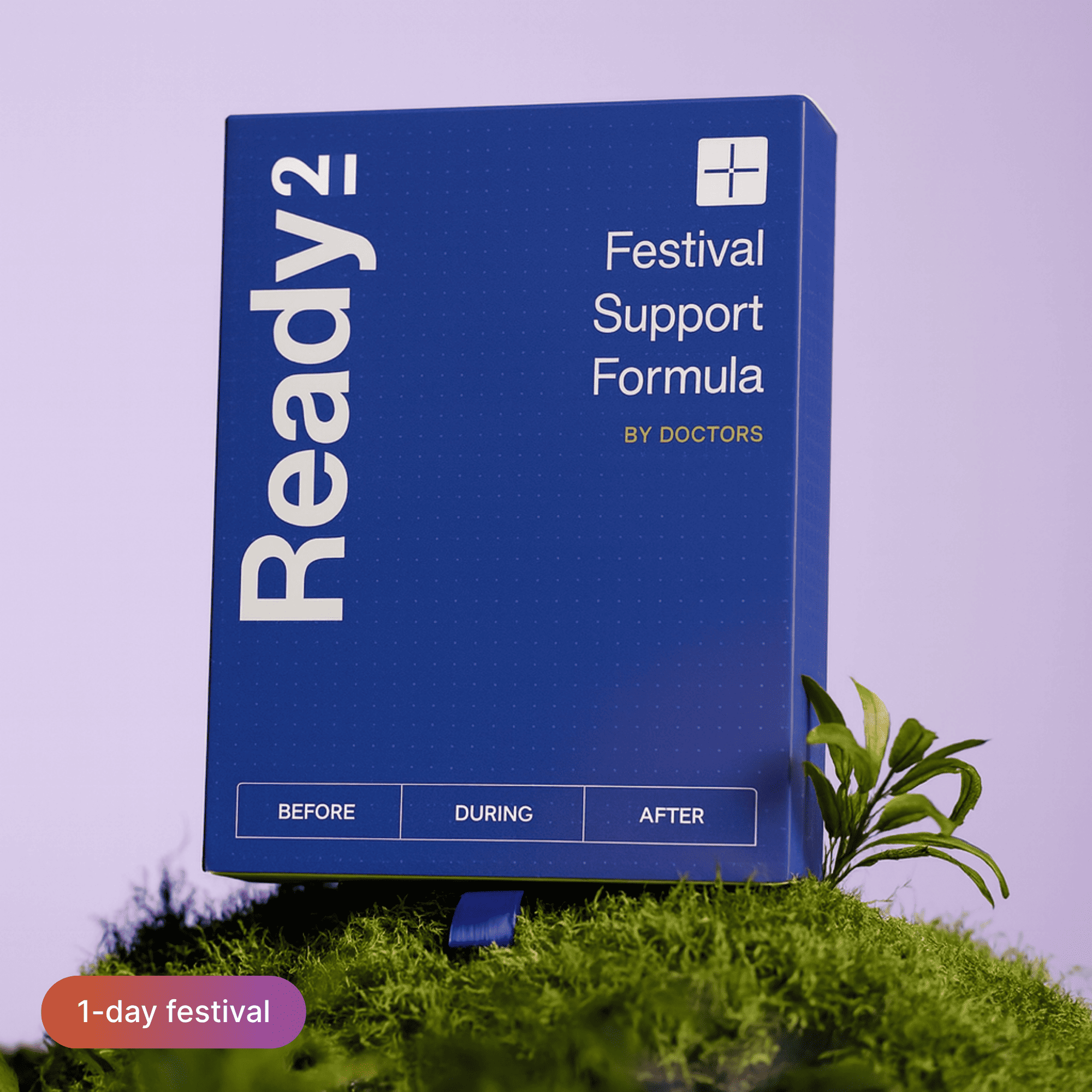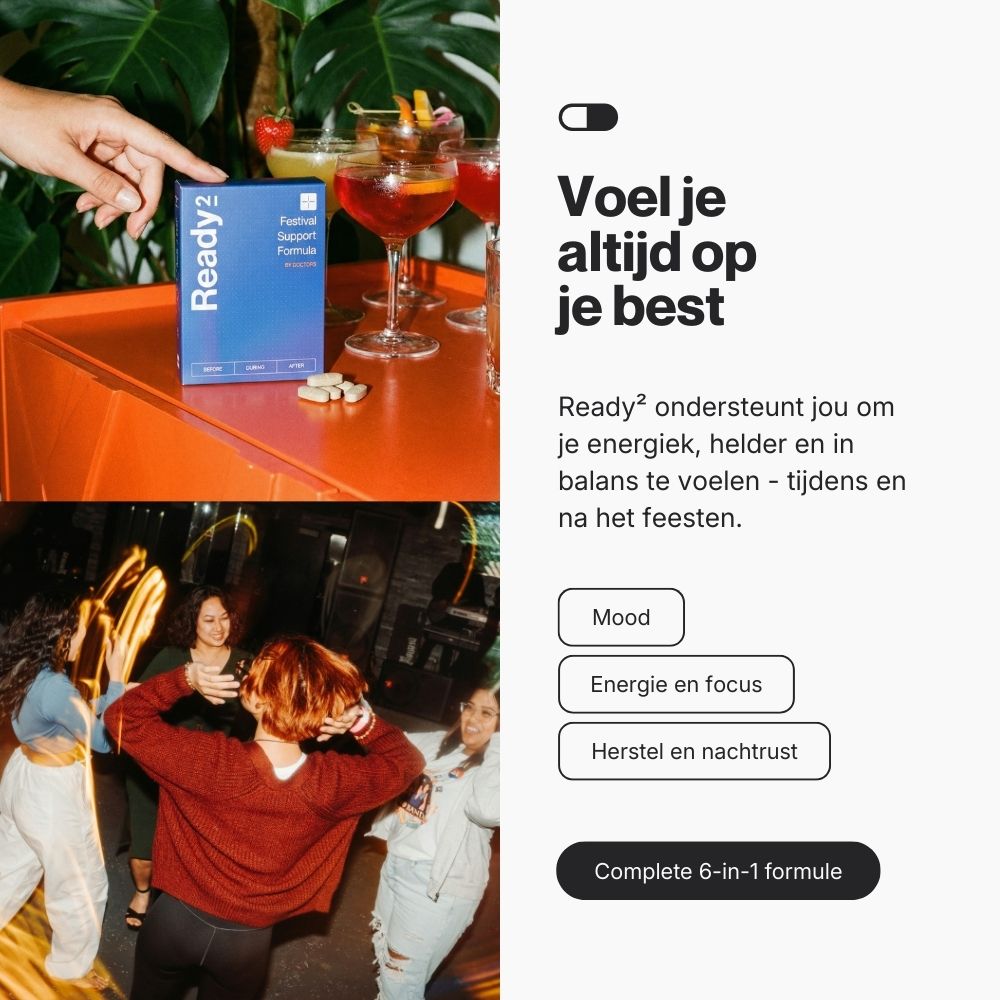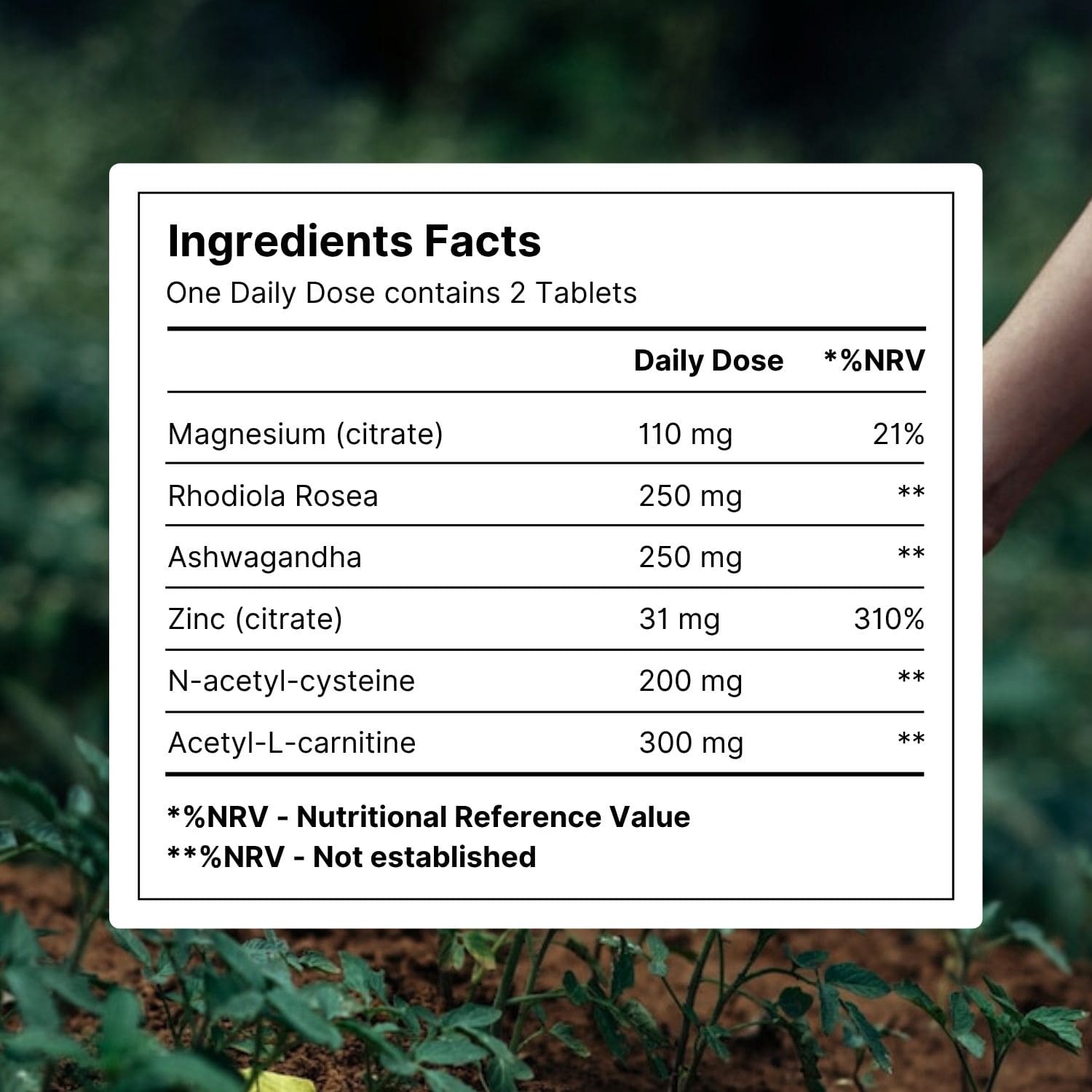
- by Ready2 Team
The best diet before a festival
- by Ready2 Team
A day of partying costs a lot of energy. Your body uses sugars, carbohydrates, fats, and proteins to keep everything running smoothly. Sugars are converted into long chains that are stored in your liver and muscles, which can then be used for energy. This is also why marathon runners load up on carbohydrates (like pasta) in the days leading up to a race. However, carbohydrates alone are not enough to get through a festival properly, as your body also needs fats and proteins. Fats are necessary for building cell walls, and with proteins, your body can create virtually all tissues, including serotonin. A substantial festival diet is therefore recommended, and in this article, we will tell you what this diet looks like.
Your body endures a lot at a festival, so it's important to opt for a combination of carbohydrates, fats, and proteins the day before. But how much should you eat, and how do you distribute the macros? We have some handy guidelines for that.
Roughly speaking, you need about 30 to 40 times your body weight in kilograms, in calories per day. So, if you weigh 80kg, you need approximately 2400-3200 calories, depending on whether you exercise a little or a lot. The day before a festival, you'll want to aim for somewhere in between this range. Then, you distribute the macronutrients as follows: For proteins, aim for a minimum of 1 gram per kilogram of body weight. At 80kg, this means at least 80g of protein. For optimal festival preparation, you might increase this to 2 grams per kilogram of body weight, which would be 160g. For carbohydrates, consume 3 to 5 times your body weight in grams. So, at 80kg, you would eat 240 to 400g of carbohydrates. The remaining portion of your calories can come from fats, which, for an 80kg person, would amount to about 40 to 80g of fat.
Are you unfamiliar with counting calories and macros, and does the explanation above sound complicated? No worries, we'll give you an example of an ideal pre-festival diet. Practically speaking, you want to get a bit of everything in the day(s) before a festival.
Breakfast
Consider sandwiches with meat (or dairy). If you are a vegetarian, a peanut butter sandwich is a perfect alternative. Yogurt with fresh fruit is also a good option. Eating fruit on its own is almost always a good idea, unless you are sensitive to sugars.
Lunch
The same as breakfast will suffice, but if you're looking for a bit of variety, you could choose to add something like nuts. You could also replace the bread with a wrap filled with your favorite ingredients or a salad with plenty of cheese.
Dinner
For the main meal, pasta with a piece of meat is recommended, but spiced bulgur, a pizza with organic ingredients, or fish with rice are good alternatives. If you are more into traditional, simple meals (the kind of "what the farmer knows, he eats" dishes), then potatoes with (vegetarian) meat and vegetables are a good option.
Snacks
With these meals alone, you might not yet reach your calorie needs. Therefore, make sure to have enough nutritious snacks. Some examples include individual pieces of fruit and vegetables. You can hardly eat too much of these when you're young and healthy, especially the day before a festival, as they are a good source of carbohydrates, fiber, moisture, vitamins, and antioxidants. Nuts are another option, but be mindful of the quantity, as nuts are high in calories; a handful is often sufficient. Crackers might seem a bit boring, but they are useful as a supplement to your meals. If you tend to get hungry quickly, focus on snacks that are rich in protein, vegetables, fruit, and fiber. These all provide a fuller feeling and reduce hunger.
Want to know more about this festival diet? Do you have questions about this festival diet or about specific meals and foods? Please feel free to send us a message! At Ready2, we are always willing to help you party optimally, and that goes beyond just our supplement. Finally, we want to give you one more tip: don't just eat enough the day before the festival, but also make conscious choices on the day of the festival itself. A substantial meal provides energy and can easily save you 15 euros on a sandwich at the festival. Thank us later ;)
Last but not least, it is very important to educate yourself on the the risks with festivals and learn ways to take care of yourself in a durable way:






Our medical team designed Ready² to support your body and mind during and after intense days or festivals. So you will feel like yourself much quicker and skip those horrible mondays.
This product contains 6 tablets for 3 doses.
Share:
The ultimate festival preperation